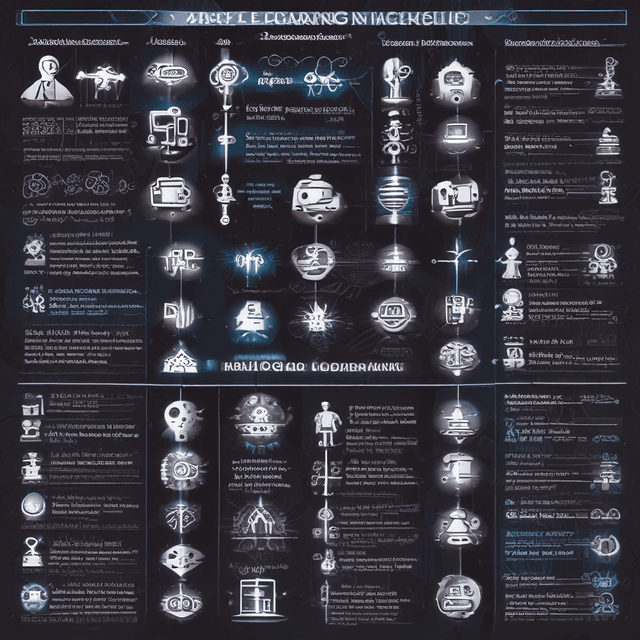
| Field | Machine Learning |
| Impact | Transforming industries • Changing daily life |
| Origins | 18th century |
| Resurgence | 1970s |
| Early Focus | Automating repetitive tasks • Agriculture • Logistics |
| Modern Applications | Internet search algorithms • Self-driving cars |
| Ethical Considerations | Impact of automation on jobs and society |
| Mid-20th Century Challenges | Technical limitations • Skepticism about real-world applications |
Machine learning, a branch of artificial intelligence focused on the development of computer systems that can learn and adapt without being explicitly programmed, has a history dating back to the 18th century. Though the field experienced periods of stagnation and skepticism, it has become an increasingly vital and ubiquitous part of modern technology and society.
The foundations of machine learning can be traced to the work of mathematicians and philosophers in the 1700s and 1800s, who explored the possibilities of creating systems that could learn from data and experience. Early pioneers included Charles Babbage, who conceived of the first general-purpose computer, and Ada Lovelace, who described algorithms for that machine.
In the late 19th and early 20th centuries, machine learning began finding practical applications, particularly in industries that required the automation of repetitive tasks. Innovations like Henry Ford's assembly line and Herman Hollerith's tabulating machine for the United States Census demonstrated the potential of using machines to learn patterns and optimize processes.
These early forays into machine learning were largely focused on specific, narrow applications rather than general intelligence. Automation was applied to areas like agriculture, logistics, and manufacturing, boosting productivity and efficiency. However, these systems were still tightly constrained and lacked the flexibility and adaptability of human intelligence.
Interest and progress in machine learning stagnated for much of the mid-20th century, as computer scientists and researchers struggled with the technical limitations of the time. The field faced skepticism about whether machines would ever be capable of surpassing human-level performance on complex cognitive tasks.
Notable setbacks included the unmet expectations of the Dartmouth Conference in 1956, where early AI and machine learning researchers failed to achieve the breakthroughs they had predicted. Funding and enthusiasm waned, and many in the scientific community became dismissive of the field's long-term potential.
Interest in machine learning was revived in the 1970s and 1980s as advances in computing power, data storage, and algorithms enabled new and more sophisticated approaches. Techniques like artificial neural networks, decision trees, and support vector machines gained traction, leading to a series of important breakthroughs.
These included image recognition systems that could accurately identify objects, natural language processing models that could understand and generate human language, and expert systems that could assist humans with complex decision-making. As machine learning continued to improve, it began to permeate an ever-widening range of industries and applications.
Today, machine learning underpins a vast array of technologies and services that have transformed daily life. It powers the search algorithms that organize the internet, the recommendation systems that curate entertainment and shopping, and the computer vision systems that enable self-driving cars. Machine learning also plays a critical role in medical diagnosis, financial modeling, weather forecasting, and countless other domains.
The impact of machine learning on the economy and society has been profound, automating repetitive tasks, optimizing complex systems, and augmenting human intelligence. However, the technology has also raised thorny ethical questions about algorithmic bias, privacy, and the potential displacement of human labor by automation.
While machine learning has advanced rapidly, significant challenges remain. Developing artificial general intelligence that can match the full breadth of human cognitive abilities continues to elude researchers. There are also concerns about the robustness and interpretability of machine learning models, as well as their potential to perpetuate societal biases.
Ongoing debates focus on topics like the appropriate regulation of machine learning technologies, the fair and equitable deployment of automation, and the societal impacts - both positive and negative - of an increasingly machine-powered world. As machine learning continues to evolve, navigating these complex issues will be crucial to ensuring the technology benefits humanity as a whole.